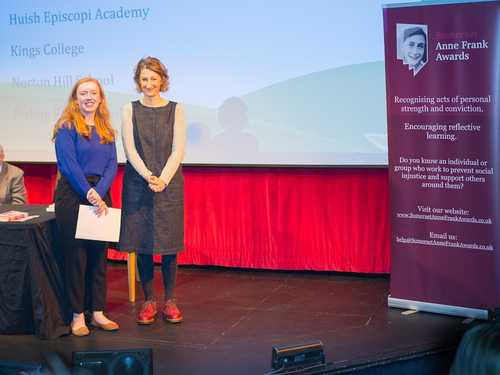Should Charity Begin at Home? - Hannah Filer

I’d like to begin my speech by asking ‘What is charity?’. It could be defined as “The voluntary giving of help, typically in the form of money, to those in need”. But let’s go a step further – what is charity to you? And why ‘must’ it begin at home? In my argument, I will discuss mortality rates, economic vulnerability, and women’s education to prove that it is selfish to claim that we should focus on our own problems while completely ignoring the strife of others.
In 2016, 5.6 million children under the age of 5 died – that’s 15,000 every day. 15,000 divided by 24 hours in a day – 625 an hour. 10 have died since I started speaking. And 83% of these deaths were caused by communicable, preventable diseases. These statistics, although shocking, represent massive worldwide progress – the under-5 mortality rate has decreased by 56% since 1990, and is the lowest that it has ever been. It is hard to see any other cause for this than the Sustainable Development Goals – a set of 17 “Global Goals” outlined by the United Nations, implemented to “transform our world” by 2030. One of the goals aims to end the preventable deaths of new-borns and children. So, what is charity – pursuing cures to eliminate preventable child death?
Moving on, I’d like to bring your attention to education worldwide, especially to the ongoing battle for global women’s education. I cannot believe I am still saying this in 2018, but 50% of girls in the poorest countries do not attend secondary school. I have recited this statistic so many times that I am numb to it. It is estimated that for every extra year a woman spends in education in developing countries, there is a 15% increase in her total lifetime income. Yet in Burkina Faso, some girls do not attend school due to a lack of private toilet facilities. The only solution to this is charity. It is our moral obligation to supply solutions that will enable women to provide for themselves.
More and more charities are focusing on how communities can be encouraged to help themselves. Take an important charity here on our doorsteps in North Somerset. The Za Foundation, a group of women from North Somerset, set up an after-school programme for children orphaned by AIDS in one of the poorest regions of South Africa. One of these students gained a scholarship to teach music at a school in North Somerset and gave back to children in our very own primary schools, sharing the richness of his culture and stories from his past. So, what is charity – exchanging skills and resources for rich cultural diversity in our community?
To conclude, I would quote A. E. Housman: “If we can, we must”. If we can prevent infant mortality, then we must. If we can invest in foreign economies to provide stability, then we must. If we can provide women’s education, then we must. I believe I have thoroughly demonstrated that charity is the nourishment and preservation of our British culture, values, and moral integrity back home. It is our duty as an economically developed country to be benevolent and just with our resources, and to be a beacon of hope to those in need.

